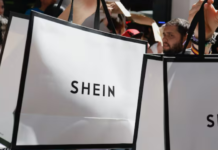After COVID -19 restructuring plans, fashion brands are increasingly aware about the importance of complex global supply chains and environmentally friendly materials being used for production. From development to production, the fashion industry leaders want to make the brands transparent by using blockchain to digitize the supply chain – so much so that it will help fashion companies track apparel production from raw materials to the finished goods.
I recently attended a fashion and related industries blockchain seminar where I noticed that an abundant number of top priority brands and journalists alike, more inquisitive and enthusiastic than before. Brands surveyed at the seminar about sourcing sustainable materials cited how they wanted to create transparency in their respective supply chains, but failed to achieve those goals in full.
Nowadays, there seems to be a heightened sense of urgency to drive sustainability as the core value of the business. But the fashion business works differently than other industry segmentations. In a word, fashion is a fragmented business. In fact, a single item can source materials from various countries to make it complete. Moreover, the raw materials and manufacturing stages are more the often abundant.













